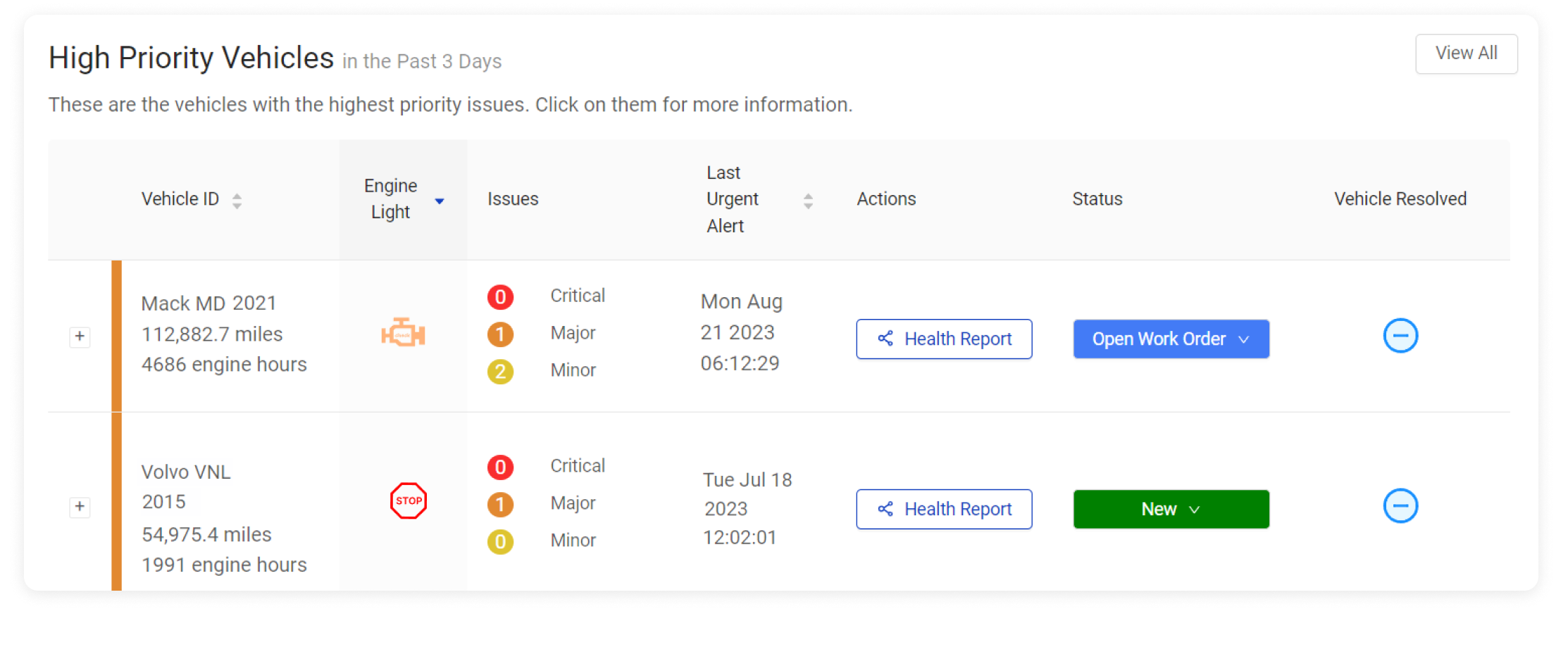
Minimizing Shop Redundancies: Proven Fleet Data Validation Strategies with Fox & James
Leasing Case Study
Overview
With a fleet exceeding 400 vehicles and a firm commitment to delivering exceptional service, Fox and James have consistently strived for excellence. At the helm of their daily operations, Chris Brackbill, the York Shop Manager, was responsible for gathering and communicating crucial information to their mechanical shops. He tackled a mission to implement a structured approach, a stark departure from their previous, less organized methods, to maximize the advantages of telematics systems.
“How can I verify if remote alerting is functioning properly?”
This forward-thinking question propelled Fox and James, a well-established truck leasing firm operating with distinction in Western Pennsylvania for over seven decades, to undertake a transformative journey with Pitstop. Fox and James aspired to take the lead in their industry by embracing innovation and leveraging concrete data-driven insights, not only to bolster their own business but also to deliver even greater value to their leasing customers. While Fox and James were already using Geotab for telematics and Fleet Nav Systems for ELD support, their pursuit of innovation led them to Pitstop, unlocking the potential for even more effective data-driven strategies.
Opportunity: Harnessing The Power of Data
Like many other companies in this industry, Fox & James faced an overwhelming abundance of data. Chris and the team recognized the untapped potential to leverage that data to better optimize their operations. Pitstop conducted an extensive review of the 400 vehicles leased from Fox and James to identify opportunities for improvement. The findings unveiled disparities between work order data and shop planner entries, highlighting the potential for enhanced communication and clarity within the organization.
The following insights presented an opportunity for Fox and James to further optimize issue identification, strengthen accountability, and boost overall operational efficiency.
The absence of a systematic approach to utilizing their telematics systems offered room for improvement in predicting and managing vehicle issues, ultimately resulting in cost savings and enhanced customer satisfaction. To seize this opportunity, Fox and James collaborated with Pitstop on a strategic plan aimed at bolstering their data analytics capabilities and refining the functionality of their telematics alert system.
Objectives
Fox and James aimed to establish a reputation for providing quality products and services to the companies renting their vehicles. With this in mind, the Fox and James fleet had three major objectives:
- Data-Driven Performance: Evaluate performance and trends consistently over time with detailed quarterly reports using accessible data sources like Shop Planner, Work Order, and Geotab data.
- Improve Telematics Alerts: This will involve the development of predictive algorithms for specific failure types and clustering fault codes to identify common patterns.
- Refine Prioritization: Collaborating with their lease customers and harnessing fleet data will allow for continuous tuning of the models, ensuring that high-risk issues are addressed.
These objectives equip Fox and James to facilitate the comparison of alerts across various systems in use, enabling the identification and accountability of preventable issues. This comprehensive framework will assess the return on investment (ROI) resulting from these strategic changes.
Results
Quantitative Reporting
Fox and James utilized Pitstop’s detailed, quantitative reports feature every quarter. These reports leveraged the data from the Shop Planner, Work Order, and Geotab datasets. This systematic and data-driven approach consistently measured performance and trends over time. It transformed how they handled data, allowing for more structured and comprehensive analysis. The capability to accurately identify and address inconsistencies and issues was significantly enhanced, creating a more accountable and efficient process. Fox and James used these reports to compare with their in-house measurements, enabling them to predict future trends and effectively plan their operations.
Telematics Alert Enhancement
In an effort to improve their alert system, Fox and James leveraged Pitstop’s insights, focusing on specific failure types and utilizing Pitstop’s clustering of fault codes to identify recurring patterns. This initiative improved the telematics alert system’s capabilities and introduced a more proactive approach to managing vehicle issues. Instead of reacting to issues as they occurred, the team could now anticipate and prepare for potential issues, significantly reducing the risk of unexpected vehicle failures. The power of Pitstop’s predictive maintenance software significantly improved fleet performance and customer satisfaction.
Eliminating Redundant Fault Code Analysis
Fox and James understood the importance of reducing manual work, where natural human error could occur in their operations, and decided to implement Pitstop to automate the work done on the shop planner. This decision streamlined processes where all identified issues were properly recorded and addressed.
“Pitstop added value by having a five hour drive time to clear codes. So I’m not looking at codes that are five days old—I’m only looking at issues that are relevant.” – Chris Brackbill, York Shop Manager
The automation improved the overall accountability and efficiency of the system, ensuring that no issue went unrecorded or unresolved without the need to review outdated fault codes. This reduced the chances of data discrepancy and allowed for a more efficient issue-resolution process, enhancing the company’s overall operational efficiency.
Process Refinement
Working closely with their lease customers, Fox and James refined their process of issue prioritization with Pitstop. Pitstop harnessed fleet data, ensuring continuous tuning of the models. It was a significant step towards improving their data management system, focusing on high-risk issues that were promptly identified and addressed. This approach led to a noticeable improvement in the resolution of vehicle issues, reducing downtime, and increasing overall fleet performance. It provided a more targeted and effective approach to maintaining the quality and reliability of their fleet.
Through the implementation of these solutions, Fox and James could get ahead of inconsistent data and have better visibility of issues with Pitstop, paving the way for improved operational efficiency and enhanced customer service.
To learn more about how Pitstop can work with your fleet and to see our platform in action, you can book a demo here.


